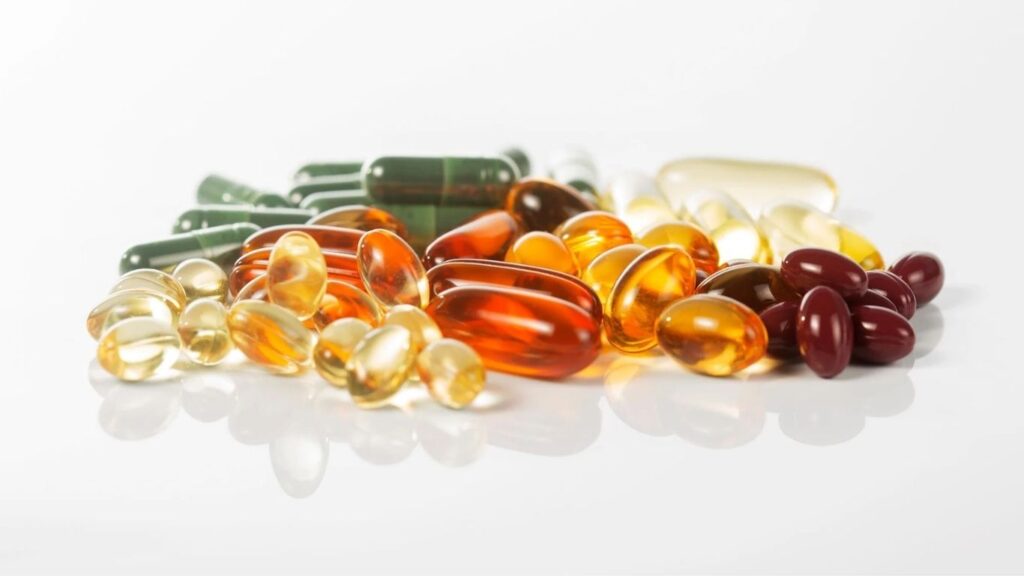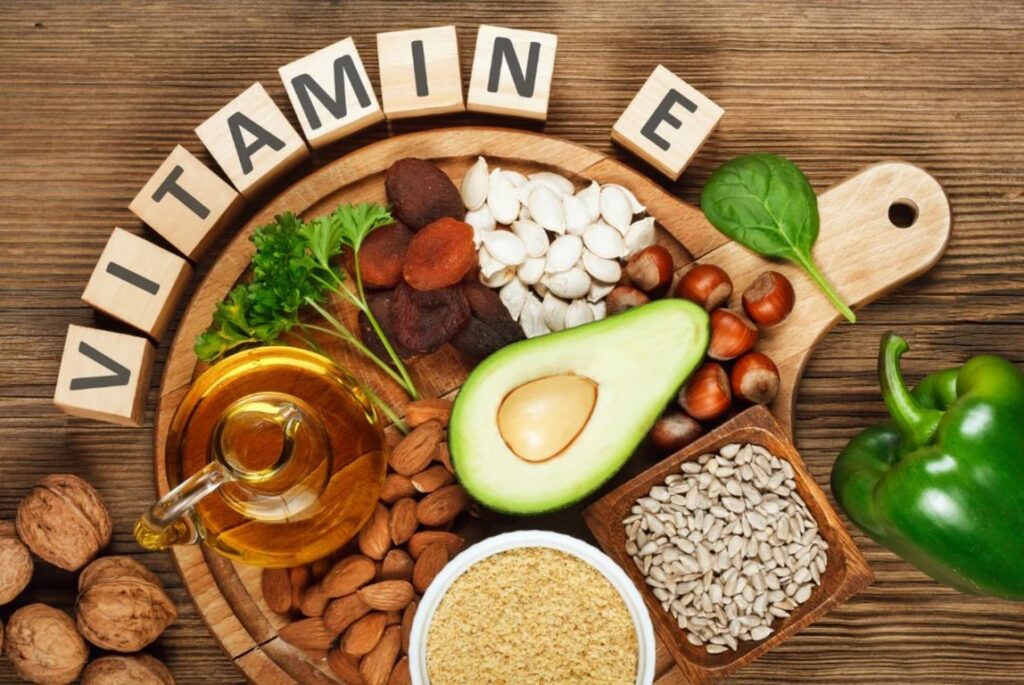Vitamin E is a crucial nutrient that plays a significant role in maintaining overall health. Known for its powerful antioxidant properties, it protects cells from oxidative damage, supports immune function, and promotes skin and eye health. While the importance of Vitamin E is well-recognized, a common debate revolves around the best way to obtain it—through natural sources or supplements. In this blog, we will explore the benefits and drawbacks of both methods to help you make an informed decision about what’s best for your health.
Vitamin E Supplements vs. Natural Sources: Which Is Better for Your Health?
Natural Sources of Vitamin E
Vitamin E is naturally present in various foods, making it relatively easy to include in your diet. Some of the richest sources of natural Vitamin E include:
- Nuts and Seeds: Almonds, sunflower seeds, and hazelnuts are among the best sources of Vitamin E.
- Vegetable Oils: Wheat germ oil, sunflower oil, and safflower oil are particularly high in Vitamin E.
- Green Leafy Vegetables: Spinach, kale, and broccoli contain moderate amounts of Vitamin E.
- Fortified Foods: Some cereals and juices are fortified with Vitamin E to help people meet their daily requirements.
These natural sources not only provide Vitamin E but also offer other essential nutrients that work synergistically to promote health. For example, nuts and seeds are rich in healthy fats, fiber, and protein, making them a nutritious addition to any diet.
Benefits of Getting Vitamin E from Natural Sources
- Balanced Nutrient Intake: Foods rich in Vitamin E often contain other beneficial nutrients, such as healthy fats, vitamins, and minerals. This holistic nutrient profile supports overall health better than isolated supplements.
- Better Absorption: Vitamin E is fat-soluble, meaning it needs dietary fat to be properly absorbed by the body. Natural sources of Vitamin E, like nuts and seeds, come packaged with the fats needed for optimal absorption.
- Lower Risk of Overconsumption: While it’s possible to consume too much Vitamin E from supplements, it’s challenging to reach toxic levels through diet alone. Natural sources provide a safe way to meet your Vitamin E needs without the risk of overconsumption.
- Additional Health Benefits: Foods rich in Vitamin E often contain antioxidants, fiber, and other compounds that contribute to heart health, reduce inflammation, and promote overall well-being.
Vitamin E Supplements: Pros and Cons
Vitamin E supplements are widely available and often come in the form of capsules or soft gels containing alpha-tocopherol. While they can be a convenient way to ensure adequate Vitamin E intake, they are not without their drawbacks.

Pros of Vitamin E Supplements
- Convenience: For individuals with dietary restrictions or those who have difficulty accessing Vitamin E-rich foods, supplements offer a convenient solution.
- Targeted Dosage: Supplements allow for precise control over the amount of Vitamin E consumed, which can be beneficial for individuals with specific health conditions requiring higher doses.
- Accessibility: Vitamin E supplements are easily accessible and can be found in most pharmacies and health food stores.
Cons of Vitamin E Supplements
- Risk of Overconsumption: One of the significant risks of taking Vitamin E supplements is the potential for overconsumption. High doses of Vitamin E can lead to adverse effects, including an increased risk of bleeding due to its blood-thinning properties.
- Lack of Nutrient Synergy: Unlike natural sources, supplements provide a single nutrient in isolation. This lack of nutrient synergy may limit the overall health benefits compared to consuming Vitamin E from food sources.
- Potential Interactions: Vitamin E supplements can interact with certain medications, such as blood thinners, statins, and chemotherapy drugs. These interactions can lead to unwanted side effects or reduced efficacy of the medications.
- Questionable Efficacy: Some studies have shown that Vitamin E supplements do not provide the same health benefits as Vitamin E from food sources. For instance, research has suggested that high-dose Vitamin E supplements may not reduce the risk of heart disease or cancer as effectively as a diet rich in Vitamin E-rich foods.
Which Is Better for Your Health?
The decision between obtaining Vitamin E from natural sources or supplements depends on individual needs and circumstances.

When to Prefer Natural Sources
- Balanced Diet: If you have access to a variety of Vitamin E-rich foods and follow a balanced diet, obtaining Vitamin E through natural sources is generally the best option. This approach not only provides Vitamin E but also ensures you receive a broad spectrum of nutrients that contribute to overall health.
- Lower Risk: For most people, getting Vitamin E from food is safer than relying on supplements, as it minimizes the risk of overconsumption and adverse effects.
When Supplements May Be Necessary
- Specific Health Conditions: Individuals with certain health conditions, such as malabsorption disorders or specific genetic conditions, may require Vitamin E supplements to meet their needs.
- Dietary Restrictions: People who follow restrictive diets, such as vegans or those with food allergies, may find it challenging to obtain enough Vitamin E from food alone and may benefit from supplementation.
- Aging Population: Older adults may have higher Vitamin E requirements due to decreased absorption efficiency and may consider supplements as a convenient way to ensure adequate intake.
Conclusion
Both natural sources and supplements have their place in ensuring adequate Vitamin E intake. However, for most people, obtaining Vitamin E through a balanced diet rich in nuts, seeds, vegetable oils, and green leafy vegetables is the best approach. This method not only provides Vitamin E but also delivers a host of other nutrients that work together to promote optimal health.
Supplements can be a useful tool for those with specific needs, but they should be used with caution and ideally under the guidance of a healthcare professional. As with any nutrient, the key to Vitamin E intake is balance—ensuring you get enough to reap the benefits while avoiding potential risks associated with overconsumption.
In the end, the best approach is to focus on a varied diet that includes plenty of Vitamin E-rich foods. This way, you can enjoy the full spectrum of health benefits that this essential nutrient has to offer.
Also read: Vitamin E Deficiency: Symptoms, Causes, and How to Prevent It
